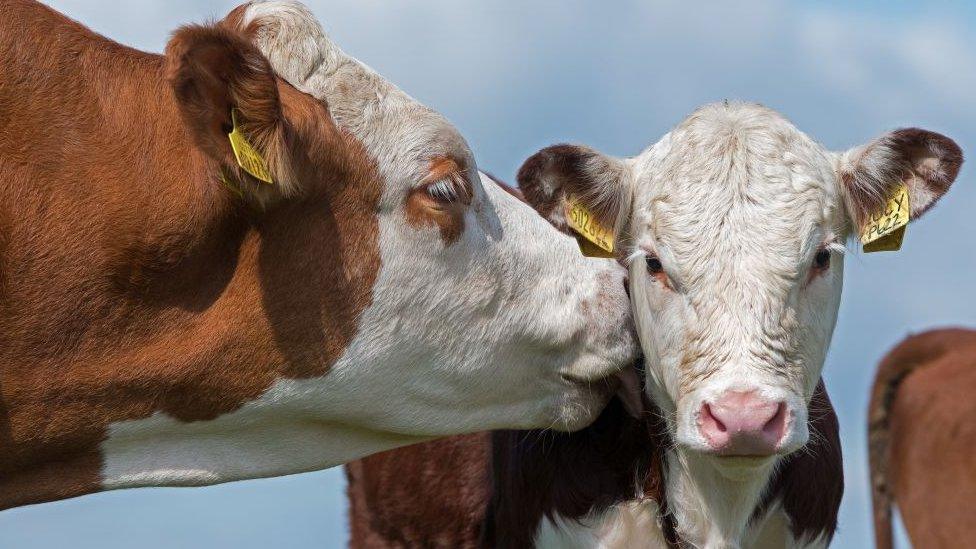Australian trade deal fears justified, says ex-negotiator
- Published
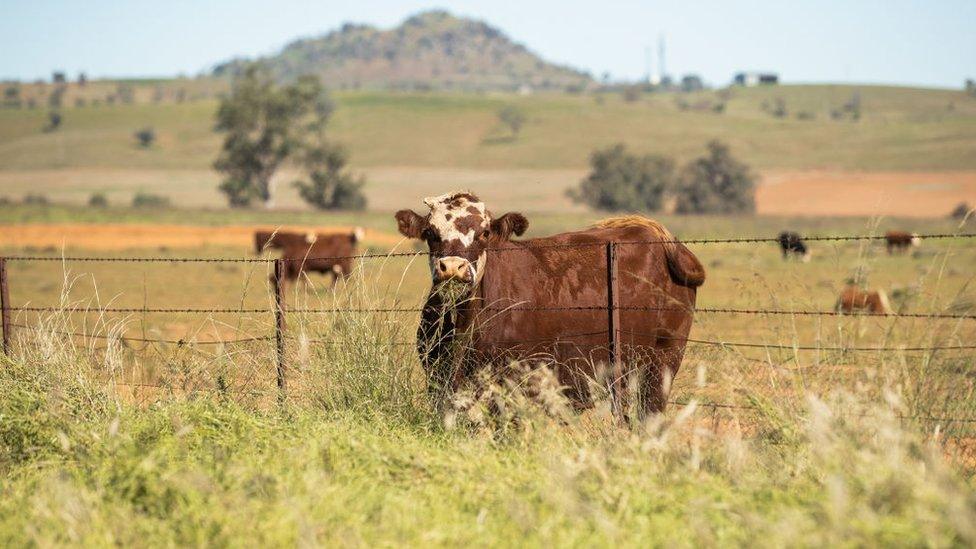
Australian livestock farms tend to be much larger than in the UK
A former Australian government trade negotiator has warned that Welsh farmers are right to be concerned about the UK's trade pact with Australia.
Dmitry Grozoubinski told MPs there was little danger of Australian agriculture imports swamping the UK market in the near future.
But he said: "Welsh farmers are right to be concerned in the long term."
UK Trade Secretary Liz Truss has said that some EU imports will simply be replaced by Australian imports.
Her department said the deal included protection for "sensitive UK agriculture" and would provide new markets for farmers.
The "agreement in principle, external" between Australia and the UK was published on 17 June, although a final signed agreement is still to be reached.
The deal - the first to be built from scratch since the UK left the EU - will cover British goods such as cars, Scotch whisky, biscuits and ceramics as well as agriculture.
Appearing before Westminster's Welsh Affairs Committee on Thursday, Mr Grozoubinski was asked by Gower Labour MP Tonia Antoniazzi, whether Welsh farmers would be at risk of being undercut by those in Australia.
"I think Welsh farmers are right to be concerned in the long term," he said.
"The [UK] government will have given away its ability to use tariffs to protect them against that possibility."
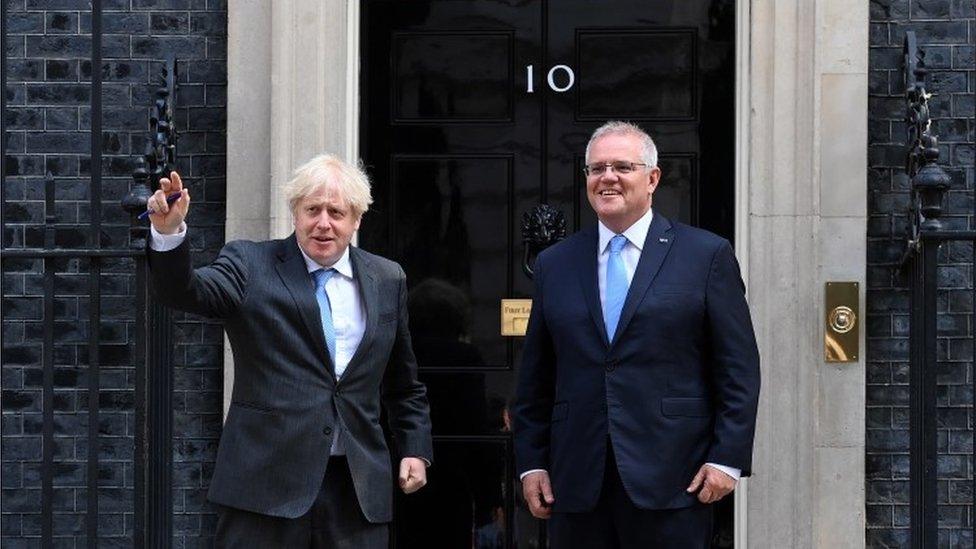
Australian Prime Minister Scott Morrison and Boris Johnson agreed the broad terms of the deal over dinner last month
Mr Grozoubinski, who is now executive director of the Geneva Trade Platform, said it was not inevitable that Welsh farming would be adversely impacted by the deal, but said it created a danger that did not previously exist.
"The numbers now are not threatening. There's no guarantees that they will ever become threatening," he said.
"What will it look like in 15 years? As a very simple example, Australian exports of beef to the US have gone up 627% in the last 20 years.
"If you looked at the numbers 20 years ago, Australia was a non-entity in the US market. It's now hovering somewhere around third by value."
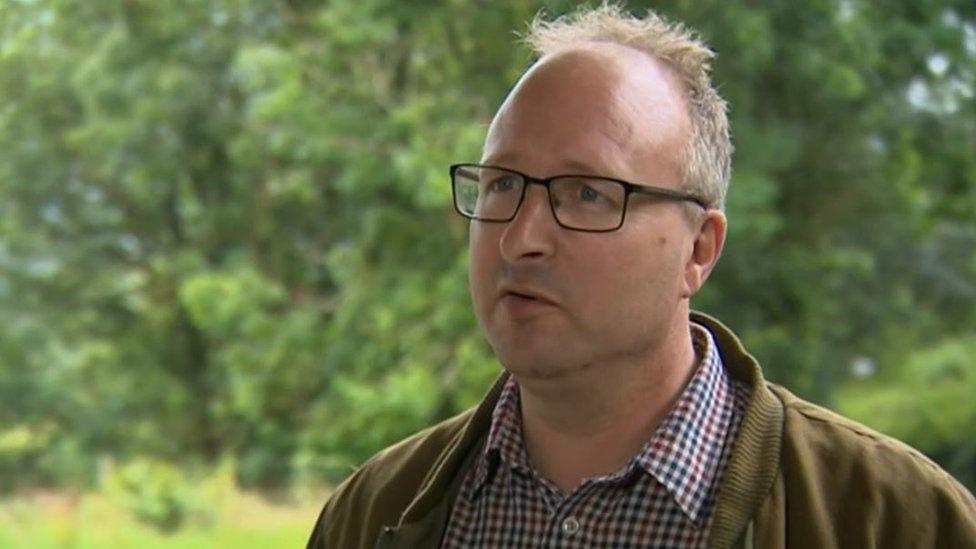
Nick Fenwick says farmers could lose "vast amounts of money on every animal"
Earlier in the session, Farmers' Union of Wales head of policy Nick Fenwick said the impact of the trade deal on Welsh Agriculture would be "pretty devastating".
He warned that cheaper production methods used in Australian farming would affect the prices that Welsh farmers would be able to charge for their produce, saying the UK's reputation for higher food standards would not be sufficient to protect the industry.
'Marginal' impact on Welsh farmers
"There are lots of people who buy on price for very good reasons. They don't have much money in their pockets," he said.
"On average lamb prices in the last 20 years have been about a pound a kilo lower in Australia than they have been here and I think it's about 60 pence for beef.
"Clearly, if those imports pull our prices down, which they inevitably would, you are talking about losing vast amounts of money on every animal in an industry where very often you're losing money on every animal anyway."
Sam Lowe, from the Centre for European Reform think tank, told the committee that while there was likely to be some impact on Welsh farmers, this was likely to be marginal.
"Because [the amount of Australian produce being imported] is so low right now, even a six hundred per cent increase isn't that much in quantity terms," he said.
"The UK already imports a lot of food. It just happens to be from the EU.
"Are we displacing domestic production or are we displacing imports from the EU? I imagine it would be a bit of both, but it wouldn't surprise me if quite a lot of that displacement was from the EU."
The Department for International Trade said it had always been clear any deal would "include protections for sensitive UK agriculture".
"Trade deals like the one agreed in principle with Australia will pave the way for us to access regional trading blocs like CPTPP [Comprehensive and Progressive Agreement for Trans-Pacific Partnership] and we will continue to work with the farming industry to help our farmers take advantage of these dynamic markets," a spokesperson said.
"UK farmers have a strong reputation for their high-quality, high-welfare produce. We put British farming at the heart of our trade policy and we have some of the most robust and transparent scrutiny arrangements in the world."
- Published15 June 2021
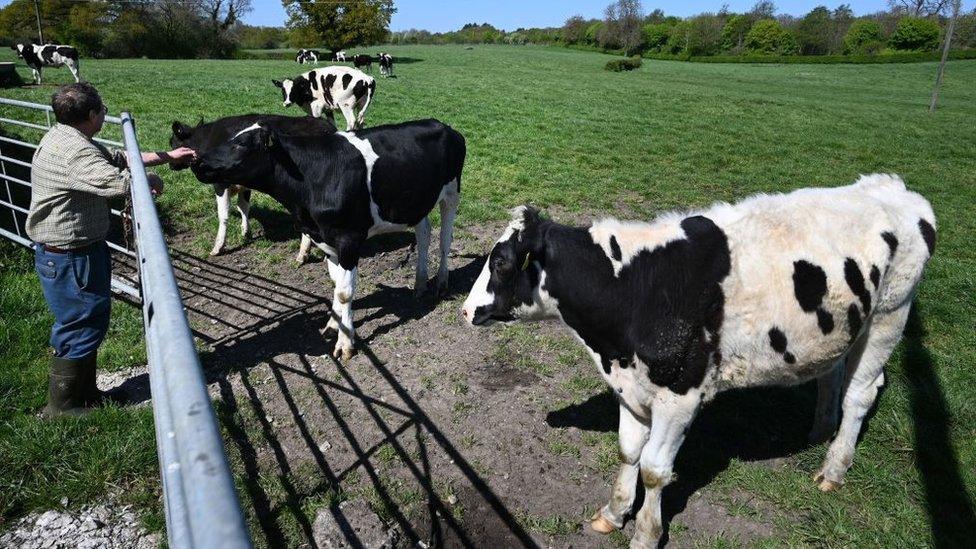
- Published17 June 2021
